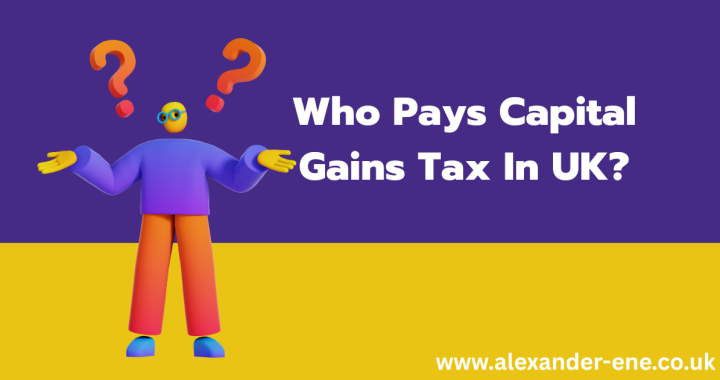Have you ever wondered if you need to pay tax when you sell your cryptoassets? It’s a common question with an answer that may surprise you. Selling cryptocurrencies like Bitcoin, Ethereum, or any other tokens can have tax implications that you might not be aware of. Navigating the UK’s capital gains tax on cryptocurrency doesn’t have to be daunting if you know what steps to follow.
When you sell or give away cryptoassets, knowing whether you owe Capital Gains Tax (CGT) can save you from potential financial pitfalls. The rules can feel a bit complex—whether you’re selling tokens, exchanging them for a different type, or even using them to pay for goods and services. In this friendly guide, you’ll learn to navigate these waters by working out your gains for each transaction, understanding allowable costs, and correctly pooling the costs of your tokens. Ultimately, mastering these details ensures you’re compliant with HMRC’s regulations, which is crucial for anyone involved in the fast-evolving world of cryptocurrencies.
When to consider capital gains tax on cryptocurrency
Understanding when to consider your tax obligations is crucial. You might need to pay capital gains tax on cryptocurrency if you:
- Sell your tokens.
- Exchange your tokens for a different type of cryptoasset.
- Use your tokens to pay for goods or services.
- Give away your tokens to another person (unless it’s a gift to your spouse or civil partner).
- Donate tokens to charity: You may still need to pay Capital Gains Tax on them, so be sure to investigate this further.
Work Out if You Need to Pay
Before you get anxious about capital gains tax on cryptocurrency, let’s break down how to determine if you owe any:
Calculate Your Gain
To check if you need to pay capital gains tax on cryptocurrency, work out your gain for each transaction. Typically, your gain is the difference between what you paid and what you sold the asset for. If you acquired the asset for free, use its market value when working out your gain.
The 30-Day Rule
If you sell tokens within 30 days of buying them, the way you calculate your gain changes. The rules are similar to those for shares. Be mindful of this, as it can affect how your tax is calculated.
Allowable Costs
You can deduct specific allowable costs to reduce your capital gains tax on cryptocurrency, such as:
- Transaction fees before they are added to the blockchain.
- Advertising costs for finding a buyer or seller.
- Costs of drawing up contracts for the transaction.
- The cost of valuation to work out the gain.
However, you cannot deduct costs like those already claimed against profits for Income Tax of mining activities (like equipment or electricity).
Pooling Tokens
You should pool the costs of your tokens in the same way you pool costs for shares. This means grouping each type of token into pools and working out a pooled cost for each type.
| Token Type | Pooled Cost Calculation |
|---|---|
| ETH | Add the amount paid to the pool. Subtract an equivalent proportion of the pooled cost when you sell. |
| BTC | Same method as ETH. |
You should always keep records for each pool.
Same-Day and 30-Day Rule
Do not group tokens into pools if:
- You bought them on the same day that you sold tokens of the same type.
- You bought new tokens within 30 days of selling old ones.
In this case, you follow the same rules as you do for shares.
How to Report and Pay
When it comes to reporting and paying capital gains tax on cryptocurrency, you have options. You can:
- Complete a Self Assessment tax return at the end of the tax year.
- Use the CGT real-time service to report it immediately.
Keep in mind that the amount of tax due may differ if you’re not a UK resident. Also, ensure that your tax return is completed in pound sterling.
Non-UK Residents
If you’re residing outside the UK, double-check your tax obligations, as they may differ from what UK residents face.
Records You Must Keep
Good record-keeping is your best friend when dealing with capital gains tax on cryptocurrency. You must keep detailed records for every transaction. Here’s what you need to note:
- Type of tokens.
- Date you disposed of them.
- Number of tokens disposed.
- Number of tokens left.
- Value in pound sterling.
- Bank statements and wallet addresses.
- Record of pooled costs before and after disposal.
You’ll also want to keep other records such as wallet addresses since HMRC may ask to see your records for a compliance check.
Why Bother with Records?
Keeping precise records ensures that you can justify your calculations if questioned. It can save you a lot of headaches and potential penalties down the line.
More Information and Keys to Compliance
If you’re looking for more information, check HMRC’s guidance on cryptoassets for individuals. Detailed guidance helps you understand various nuances and closes potential gaps in your compliance process.
And remember, the world of crypto is complex but manageable with a bit of effort and the right information. By keeping abreast of your tax obligations, you not only stay lawful but also ensure peace of mind.
Conclusion
Selling cryptoassets can trigger tax obligations, primarily in the form of Capital Gains Tax. By understanding when and how to check your responsibilities, calculating allowable costs, and keeping detailed records, you make the process smoother for yourself. When in doubt, always check HMRC’s guidance or consult with a tax professional for tailored advice.
Have you sold or exchanged crypto recently? It might be worth revisiting your records and ensuring you are fully compliant with HMRC requirements. Being proactive today can save you from potential compliance issues tomorrow. So, take a moment to check if you need to pay capital gains tax on cryptocurrency when you sell your cryptoassets—you’ll thank yourself later!





